Taking care of your skin each day during cancer treatment
Dryness, redness, irritation... during cancer treatment, your skin is not spared from the side effects of treatments. During this period, you will need to take care of it. This requires good habits to be adopted every day.
Cancer: skin hygiene during treatment
Do I need to adapt my daily care routine during treatment? The way some cancer treatments work can make your skin dryer, more sensitive and easily irritated. Gentle, appropriate cleansing and moisturising care are, therefore, essential in preventing prevent and not worsening the side effects on the skin. Taking the right steps to care for your face and body will help reduce the effects of treatment on your skin and help you feel better. However, some precautions should be taken, especially in terms of product selection.
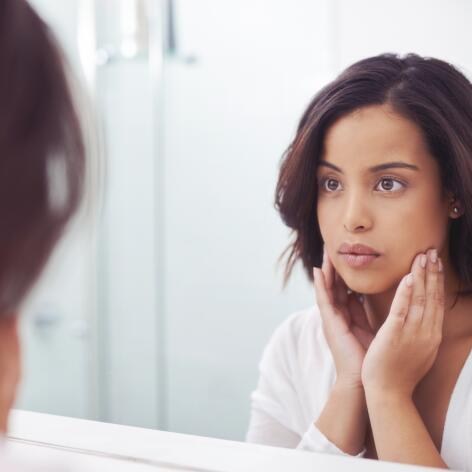
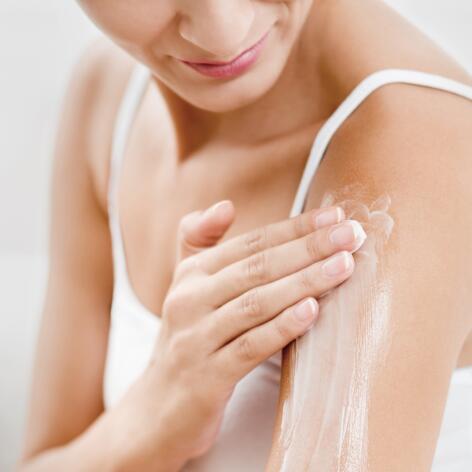
Gentle and non-aggressive: the right products during your treatment
To take care of your skin every day, products should be carefully chosen. Some unsuitable products could further irritate your skin. In general, use only “ gentle ” products, specially formulated for hypersensitive and reactive skin, without soap or fragrance, so as not to increase the dryness and sensitivity of the skin. The specifications for your cosmetics will be strict: they must be free of preservatives (likely to cause allergies) and contain a minimum number of ingredients... Health professionals are there to guide you. ALWAYS seek the advice of your oncologist, doctor or dermatologist before using your skincare products.
Gentleness in everyday life
During your treatment, your skin will have specific needs. Continuing to take care of yourself every day is important... but with a few small adjustments. Which product to use to clean your face and body? What about moisturising them? Can you continue to use your usual shower gel? We’ll tell all.
During my treatments I changed my body and face products, I knew my skin would be much more sensitive and even reactive. I opted for the most neutral and gentle products possible and my skin said thank you! No reactions and relatively comfortable skin!
Caroline
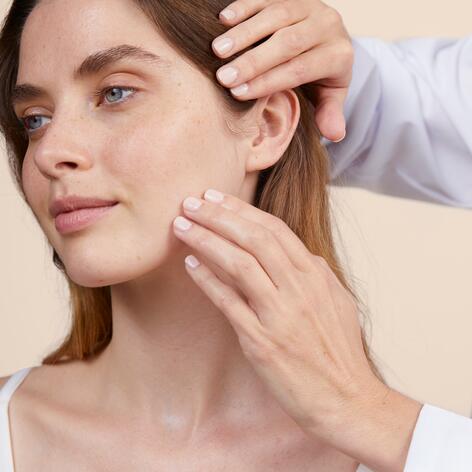
Cancer: combating treatment-related skin dryness
The disease and treatments have an impact on the texture of the skin, which can become dry. Xerosis (the scientific name for this drying out) is one of the most common consequences of chemotherapy. Most often it is a simple dryness of varying extent. It is, nevertheless, a source of discomfort, as it does not only affect the face but the entire body, from head to toe. Regular moisturising with an emollient and specific products (e.g. for the lips) will provide softness and comfort.
During treatment, protect yourself from the sun...
What could be more pleasant than sunbathing? However, during chemotherapy, the sun's rays increase the risk of burning and some drugs can make your skin hypersensitive and cause hyperpigmentation. You should, therefore, avoid exposing your skin as much as possible, even to moderate sunlight. Always remember to protect yourself with an SPF 50+ sun cream.
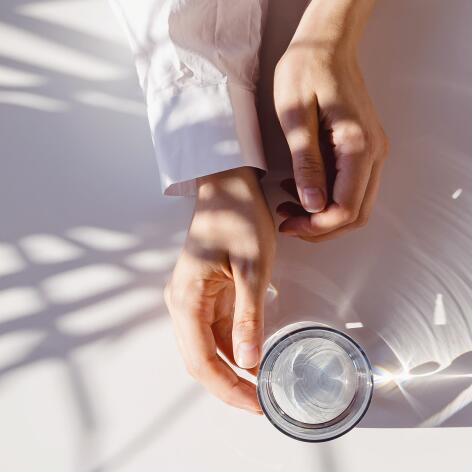
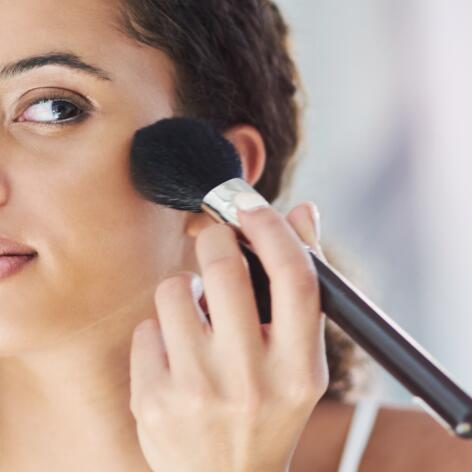
Make-up, a beauty ally
During treatment, your complexion changes and your skin loses its radiance. Your eyelashes and eyebrows can fall out, changing your appearance. Medical make-up is a great ally; it will help you to hide the signs of fatigue and the effects of treatments. Here again, a few precautions should be taken in the choice of your products and in the way you use them. Because even a foundation should not be chosen lightly...
FRIENDLY (AND EXPERT) ADVICE
Don't forget to remove your make-up
If make-up is of real interest, don't forget the make-up removal step every day. You should cleanse your face morning and night to remove make-up, impurities and small dead skin cells. Apply a small amount of cleansing milk or lotion to your forehead, nose, cheeks, etc. and massage gently with your fingertips in a circular motion. Then, carefully remove the excess with a tissue. To complete make-up removal, finish with a spray of thermal spring water with soothing, softening and anti-irritating dermatological properties.
OUR ANSWERS TO YOUR QUESTIONS
Daily hygiene and cancer: we’re here to help you sort fact from fiction
Makeup is not just for women. You too, gentlemen, can enjoy its benefits, especially acneiform eruptions. A little bit of fluid corrective foundation to be dabbed locally with a sponge and the lesions are masked.
As with daily hygiene products, it is important to use only shaving products that do not contain alcohol or perfume. This also applies to aftershaves. During the treatment period, your skin is weakened and these products are far too aggressive. To quickly alleviate the fire of shaving, to pulverize a thermal Spring water of Avène just before the application of a hydrating care.
Is it possible to have hair removed during treatment? In some cases, the skin is too fragile for hair removal, whether it be by waxing, depilatory cream or an electric epilator. Before anything else, talk to your oncologist.
Our solutions for your skin during treatment
Eau Thermale Avène skincare products designed to help you feel better about your skin.
It has a natural and preservative-free formula. So if you have redness, tightness, tingling and your skin feels hot, this cream is for you!
Elsa, 26 years old
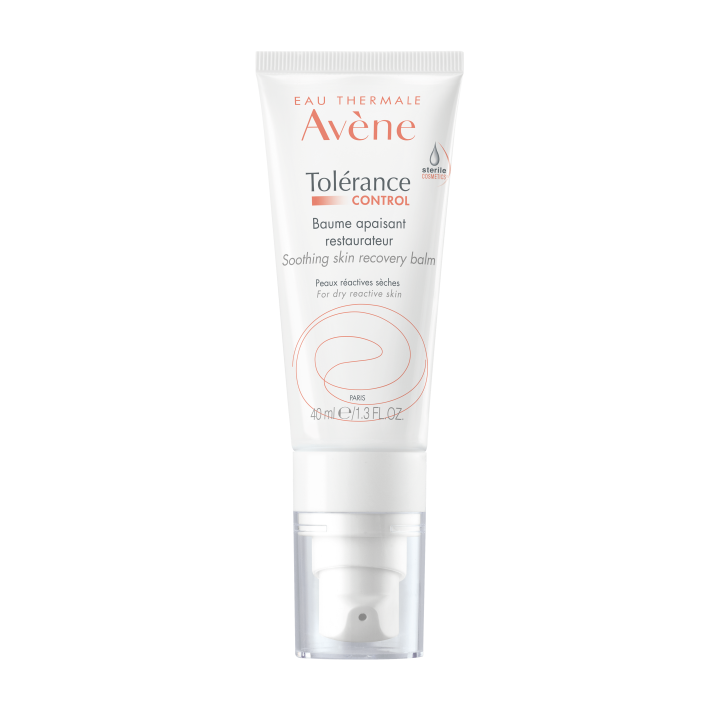
MORE
- Protecting yourself from the sun during cancer treatmentProtecting yourself from the sun during cancer treatment
NEWSLETTER
We’re always here for your skin!
All our tips for taking care of your skin day to day.
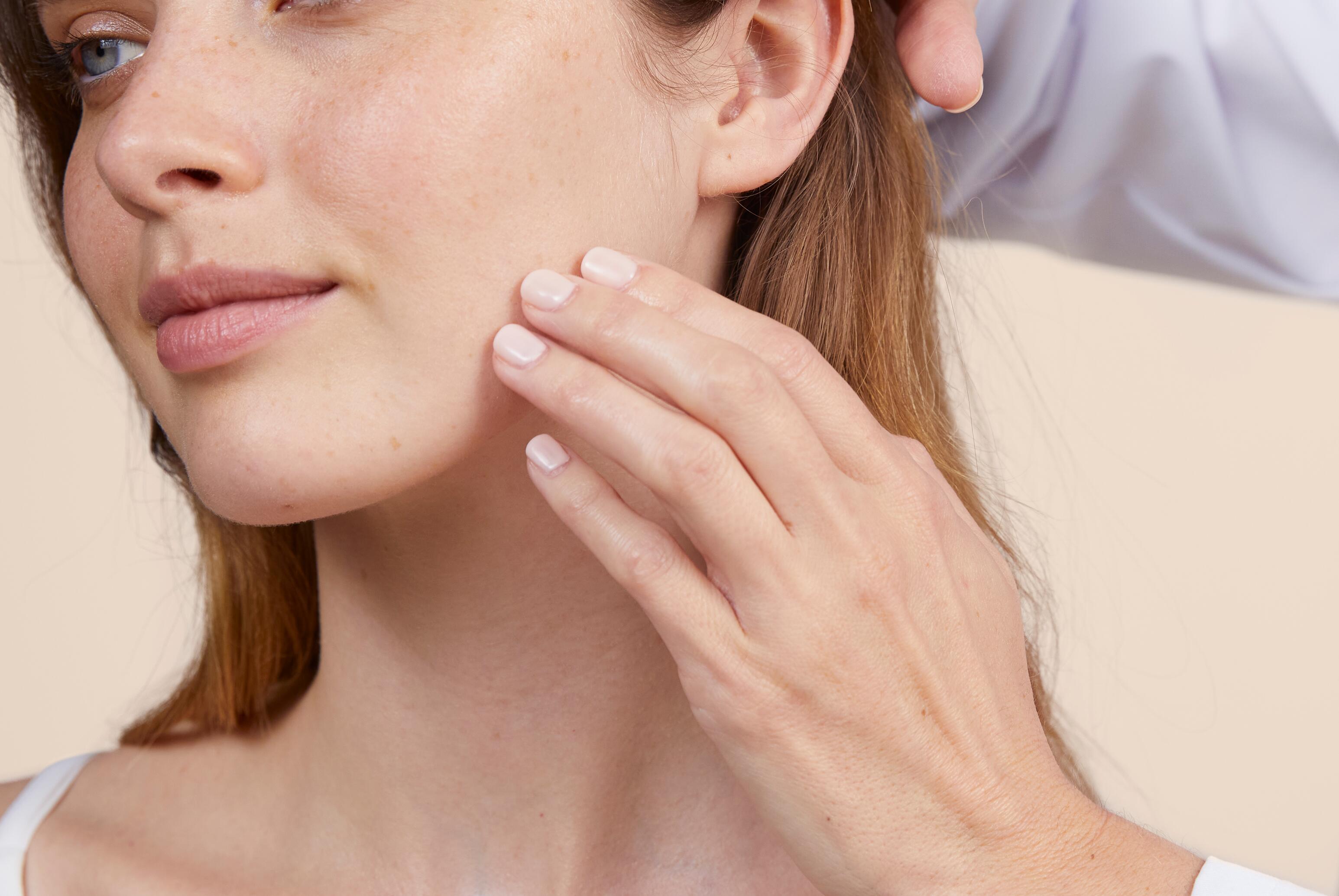
Which skin care routine should you adopt?
Identify what it really needs with the help of our experts and discover the most suitable skin care routine for you.




